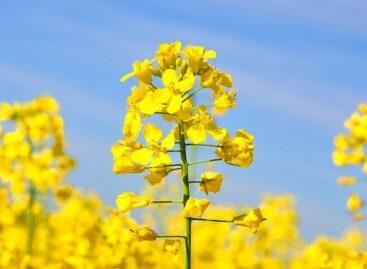Our country extends and extends the ban on the import of Ukrainian grain
We protect the interests of farmers, so after Brussels decided not to maintain the ban on the import of Ukrainian agricultural products, our country will do so under its national authority and expand its product range to a wider range – said Minister of Agriculture István Nagy.

(Photo: drnagyistvan.hu)
The head of the ministry reminded that the EU import restriction measure for agricultural products from Ukraine expired on September 15. However, in order to deal with market disturbances, the moratorium must be maintained in the future. If cheap Ukrainian imports were to flood the markets of the member states neighboring Ukraine again, there would not be enough storage capacity to store the crops of the autumn harvest, sales to the domestic market would be impossible, and then farmers would have to face even greater difficulties, but we cannot ignore this, he added.
István Nagy highlighted that we waited until the last moment for the European Commission’s decision regarding the maintenance of the prohibition provision
However, Brussels did not listen to the Eastern European farmers’ request for help, and would essentially leave it up to Ukraine to decide how much and what to export to Hungary and the other frontline countries. We, on the other hand, have to act, which is why Hungary extends and extends the import ban on Ukrainian agricultural products within its national competence. The ban also covers cereals, rapeseed and sunflower seeds, flour, cooking oil, honey, certain types of meat and eggs, he added. The minister stated that we will protect the interests of Hungarian farmers in all circumstances and with all means. He emphasized that our country still does not prohibit the transit of Ukrainian products on the territory of Hungary. Transit shipments are still permitted, but the competent authorities lock them at the border in accordance with the previous practice, track them and check the route of the affected products throughout the country.
This is the purpose of importing Ukrainian grain
According to the minister, the goal of the large Ukrainian agricultural companies owned by international capital is no longer to sell to the third world, but to dominate the EU markets, which will cause serious problems not only for the border farmers, but also for all the member states. We must not forget that agricultural products produced in Ukraine do not have to meet nearly as strict requirements as those produced in the European Union, which makes production much cheaper. He added that we see that multinational capital wants to occupy the European Union market for the sake of even greater extra profit, thus ruining hundreds of thousands of European farmers. Brussels assists in this, representing the interests of international companies operating in Ukraine instead of the interests of Hungarian and European farmers. We cannot let this happen, as it is in the interest of all European citizens that products produced under controlled conditions, from the producer to the table, end up on their tables, and the farmers rightly expect that we provide them with security and a suitable vision for the future.
AM
Related news
The Hungarian Food Book is 50 years old
🎧 Hallgasd a cikket: Lejátszás Szünet Folytatás Leállítás Nyelv: Auto…
Read more >Rapeseed prices fell worldwide and domestically
🎧 Hallgasd a cikket: Lejátszás Szünet Folytatás Leállítás Nyelv: Auto…
Read more >Related news
The impact of the forint exchange rate on GDP growth
🎧 Hallgasd a cikket: Lejátszás Szünet Folytatás Leállítás Nyelv: Auto…
Read more >









